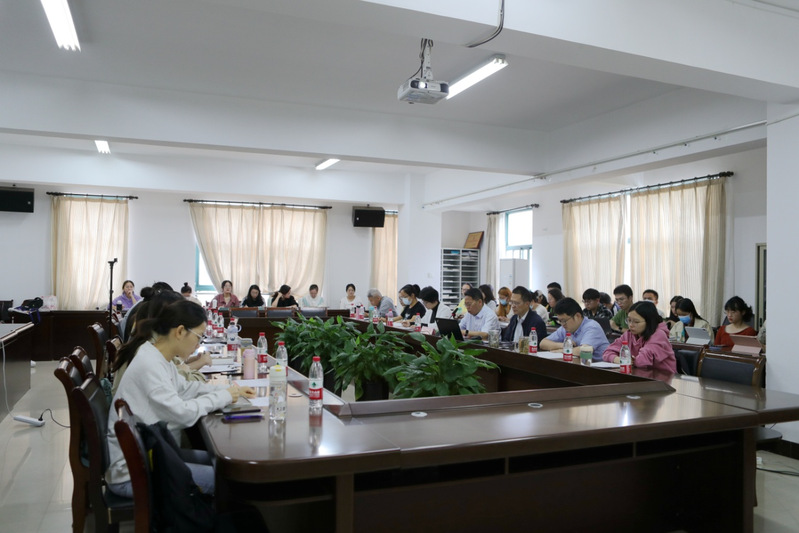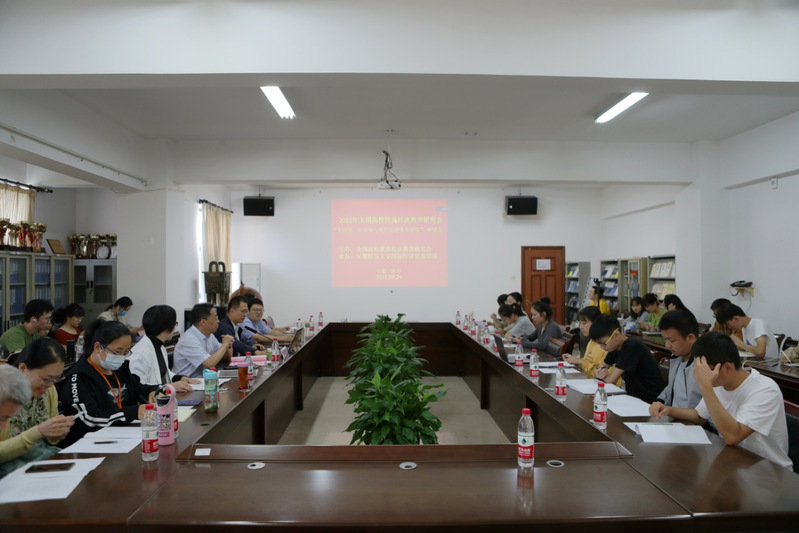On September 24th, the 2022 National Unified Market and Modern Circulation System Construction academic seminar, sponsored by the National Association for Trade and Economics Teaching and Research in Higher Education Institutions and organized by the School of International Economics and Trade, was held in our university. Professor Zhou Jialai, Vice President of AUFE, and Professor Wang Xiaodong, President of the National Association for Trade and Economics Teaching and Research at Renmin University of China, attended the opening ceremony and delivered a speech. More than 200 experts, scholars, teachers and students from Renmin University of China, Chinese Academy of Social Sciences, Northeast University of Finance and Economics, Beijing University of Technology, Hebei University of Economics and Trade, Nanjing University of Finance and Economics, Nanjing Audit University and other domestic universities and research institutions participated in the seminar, which was held online and offline.
At the opening ceremony, Zhou Jialai first warmly welcomed the attending experts and representatives, expressed sincere gratitude for the support they provided to the school's trade economy major and disciplinary construction, and briefly introduced the school's new economic management strategy and the construction of a first-class undergraduate major in trade economy in the country.
Professor Wang Xiaodong, President of the National Association for Trade and Economics Teaching and Research in Higher Education Institutions and Professor of the School of Business at Renmin University of China, pointed out in his speech that this academic seminar promotes academic experts to jointly explore hot issues in the construction of aunified market and modern circulation system, providing useful reference for accelerating the construction of an efficient, standardized, fair competition, and fully open national unified market. During the seminar speech stage, Professor Ji Lianggang, former president of Hebei University of Economics and Trade, elaborated on the specific characteristics of the modern circulation system in the context of a unified national market; Professor Wang Xiaodong from the School of Business at Renmin University of China summarizes the logical relationship between a unified market and a modern circulation system; Researcher Yi Shaohua, director of the Circulation Industry Research Office of the Institute of Financial Strategy, Chinese Academy of Social Sciences, analyzed the current development situation of the logistics industry and put forward countermeasures and suggestions; Professor Zhu Heliang from the School of Economics and Management at Beijing University of Technology shared several insights on accelerating the construction of a unified national market; Professor Zhang Chuang, Dean of the Circulation Research Institute at Northeastern University of Finance and Economics, systematically reviewed the current research status of B2B e-commerce platforms and pointed out future research directions; Professor Li Chenhua, Dean of the School of Economics at Nanjing Audit University, elaborated on the origin of market segmentation, the urgency of market integration, and how to promote market unity; Professor Xie Lijuan from the School of Business at Renmin University of China analyzed the practical exploration and evolution relationship between the construction of a unified national market and a modern circulation system; Professor Chen Axing from Anhui University of Finance and Economics provides valuable research perspectives on optimizing the business environment, modern information technology, and digital commodity circulation.
The smooth convening of this seminar provides a platform for communication, discussion to comprehensively promote the transformation of China's market from large to strong, build a high standard market system, and build a high-level socialist market economy system.





